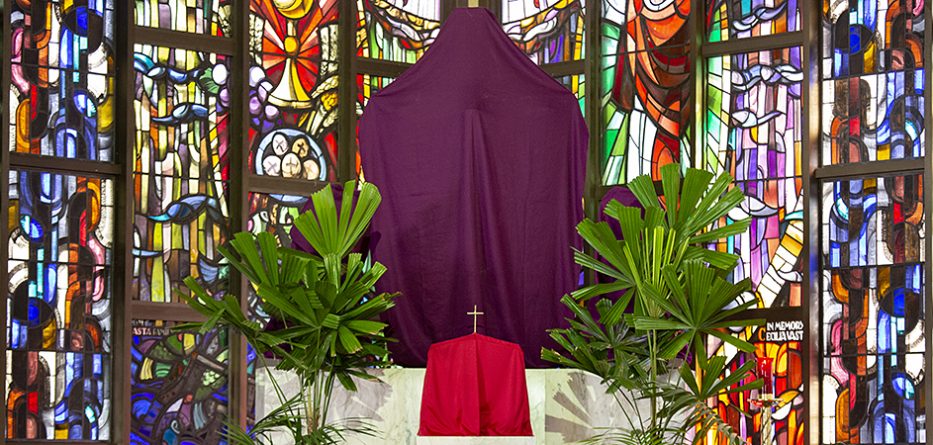April 5 is Palm Sunday of the Passion of the Lord
Each year on Palm Sunday, small groups in major Australian cities have marched to plead the cause of people who seek protection. This year, Coronavirus will prevent the marches, and rightly so. But we should take time to honour the commitment and enthusiasm of the participants, and to recognise that it is not shared by the population as a whole and that the Government is determined to maintain its harsh policies. Set against the challenge posed by the Coronavirus, the marches can seem to have been idle and quixotic, insignificant events supporting a lost cause.
If they are such, Palm Sunday is an appropriate day for lost causes. It recalls the ceremonial entry into Jerusalem of a man proclaimed by a handful of people as king. The city was under Roman occupation and defended by a military garrison. The man had no support among the leaders of the Jewish people, no armed followers. He was accompanied by a rage-tag crowd of disciples from the backblocks of Palestine and onlookers. Instead of riding erect on a white horse amid a sea of flags as leaders do, he rolled and swayed in on a donkey with people waving branches torn from trees.
The scene was more Monty Python than Royal Coronation, a mockery of dynastic ambition and the games of power. He was entering a city, too, whose leading figures had already infiltrated his close followers and had decided to have him killed. For them, Palm Sunday was his last hurrah before the serious business began of arresting, trying, killing and ending the threat to public order posed by this clown. The day when a loser ensured his luck ran out.
That such an apparently insignificant day should still be celebrated is remarkable. And that the man with no power who was rejected and executed in the most dehumanising way by the leaders both of the Romans and of his own people should now be honoured and have greater power and fame than them, is even more remarkable.
The reason, of course, is that for his followers the story did not begin nor end with the week which culminated in his death. Its beginning lay in God joining us in the poverty of our lives. It continued with Jesus’ mission to the poor and abandoned. Nor was his death the end. He rose from the dead, showing that God was with him in his way of life and of his death. The path to life went through his rejection and execution. That was a sign of hope especially for the poor and rejected people to whom he turned.
That is why Christians have seen Palm Sunday as an appropriate day to remember and walk with people who are also powerless, have fled persecution and despised by others. At Jesuit Social Services, we meet many refugees and people seeking asylum, and so we have joined the march for many years. This year it is even more important to keep them in our hearts people who seek protection, though their cause may hopeless and their supporters so resourceless.
It is also an appropriate day to identify the way in which our society works and deals with people whom it sees as threats. It is a day to mock the pumped up rhetoric about the danger Australia faces from people who seek our protection, and to scorn the cloak of military power and secrecy that conceals what happens to people in Australia who have sought asylum.
When the threat of Coronavirus has passed, we shall need to rebuild our society. That will be an opportunity for shaping a more just Australia.
Fr Andrew Hamilton SJ writes for Jesuit Communications and Jesuit Social Services.








